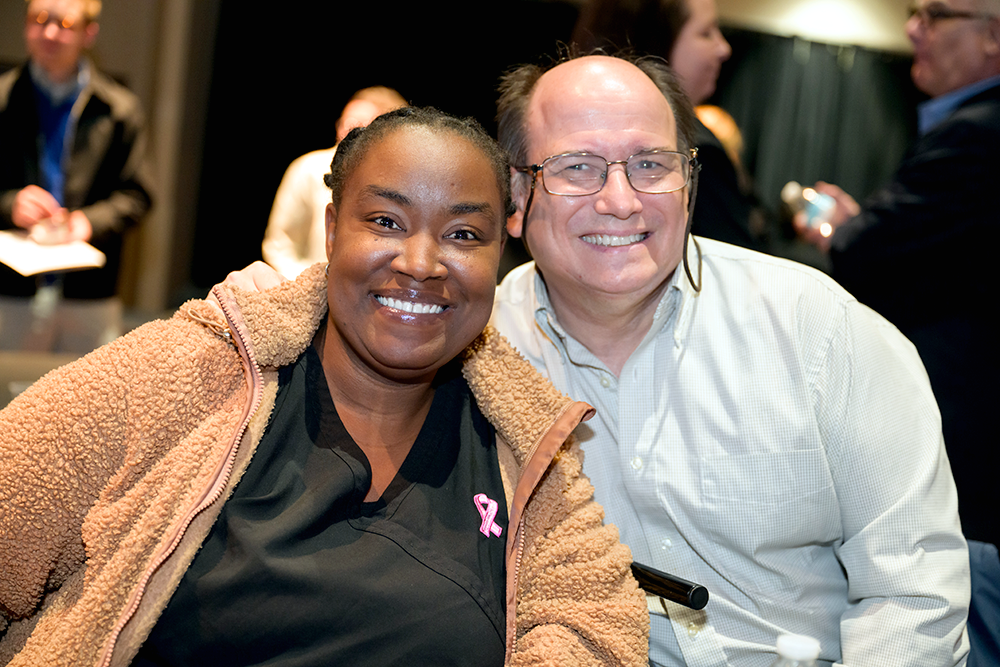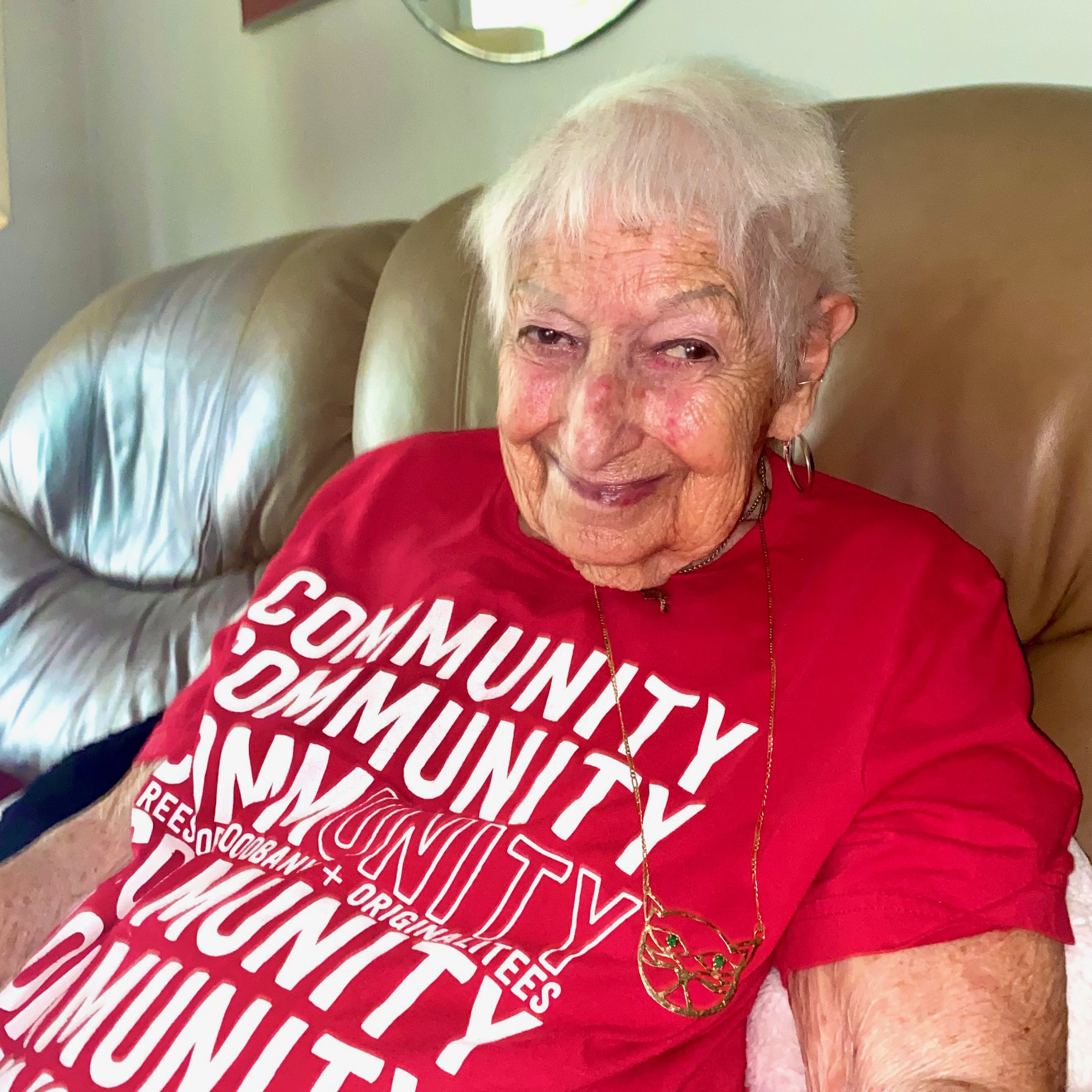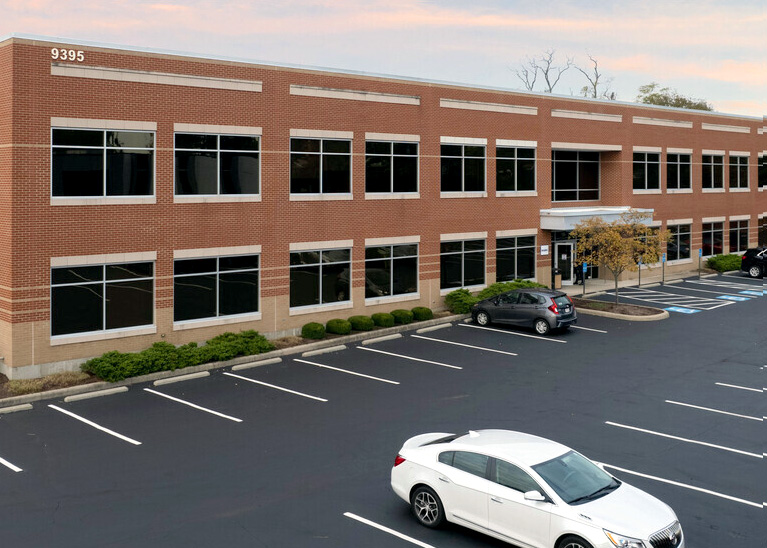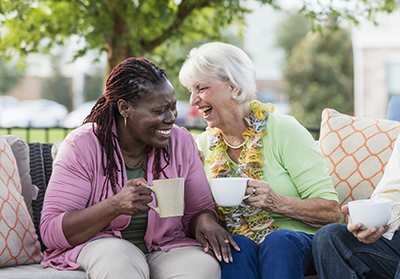Jewish Culture & Community · April 25, 2024
Damp weather did nothing to darken spirts of attendees inside the Mayerson JCC’s Amberley Room, as they smiled and mingled prior to Jewish Family Service of Cincinnati’s (JFS) Annual Meeting on April 4. The atmosphere was one of celebration and the room was full as the community convened to learn of agency accomplishments and challenges, honor individual achievements, accomplish board business, and tout JFS’s theme for the upcoming year: Bridging Barriers. Building Connections.
Older Adult Services · August 22, 2023
As Fay May was thinking ahead to her upcoming 92nd birthday, she eagerly shared how she was planning for a special ‘Birthday Shabbat’ at Rockdale Temple. “I’ll have to take my walker, of course,” Fay said. “And I have an eye problem, so I can't strike a match. Rabbi Meredith Kahan will have to light the candles on the bimah—so I don't burn the temple down,” she added with a mischievous grin. “And then, I will say the barucha (blessing), and they’ll bring the wine and the challah to my seat."
February 02, 2022
Cincinnati — Jewish Family Service of the Cincinnati Area (JFS) has moved its headquarters from the Mayerson Jewish Community Center (JCC), located on Ridge Road in Amberley Village, to Kenwood Road in Blue Ash. JFS provides a variety of high-quality professional services, including counseling for youth, teens, and young adults; help for older adults navigating the complexities of aging—through AgeWell Cincinnati; and non-medical, in-home care—with StarPoint Home Care.
Older Adult Services · March 15, 2021
Isolation is as bad for you as smoking 15 cigarettes a day. Lonely people are 50 percent more likely to die earlier than those with healthy social relationships. Data from the Health Resources & Services Administration shows more than 3.4 million people struggle with social isolation, loneliness, and living alone—and that was before the onset of COVID-19. More recent numbers show loneliness and social isolation have increased 20 to 30 percent, and emotional distress has tripled during COVID.
Crisis Intervention · June 10, 2019
As adults get older, they can become more vulnerable to scams and different types of abuse—sometimes from those whom they trust. The statistics show this is a pervasive problem, which is becoming increasingly common. Elder abuse has been recognized as a largely hidden public health problem that affects five million, or one in ten older Americans aged 60 and older, every year, according to the National Council on Aging. Globally, an estimated 141 million older adults have experienced elder abuse.





